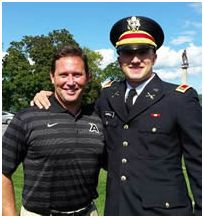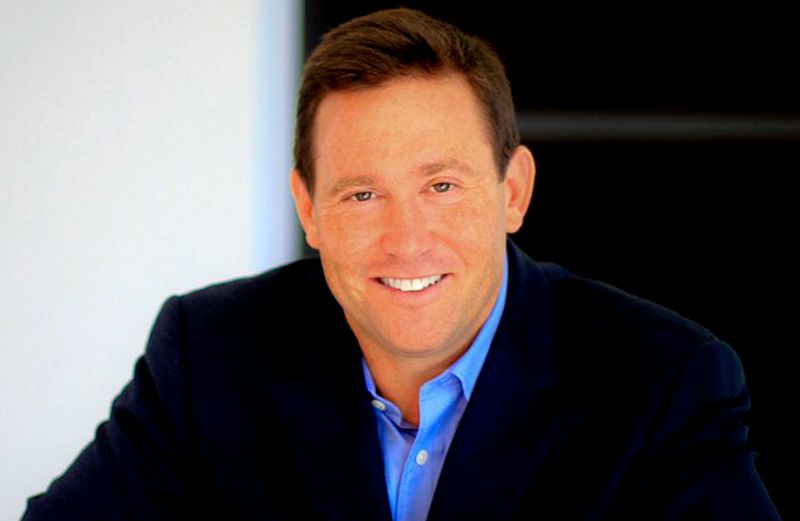Last week I had the honor and privilege to speak at West Point. After spending the day interacting with coaches, cadets and the USA basketball team, I learned far more than I taught. Here are a few of the leadership takeaways:
1. It's a leadership factory.
Some factories build products. West Point builds leaders. One of the Colonels told me "The history we teach is about the people we have taught."
2. Leadership can be developed.
While the people selected to go to West Point have demonstrated leadership qualities during their young life they are by no means a finished product. Everything West Point does is geared towards developing these young men and women into leaders.
Leadership is a skill and it can be developed. Your organization may not be West Point but you can invest in your people now and develop them into your future leaders tomorrow. I am a huge believer in leadership development programs and organizations that grow and develop leaders from within.

The young men and women who attend West Point made a choice to lead and serve. You and I can make the same choice each day. We may not lead and serve in the military but we can choose to lead our teams and serve a cause greater than ourselves.
4. Leadership is both macro and micro.
Macro-leadership involves culture, vision, strategy, and the ability to lead at the organization level, while micro-leadership involves leading at the team and individual level. Macro and micro leadership require a different set of skills.
When a cadet graduates West Point most are technically better at macro-leadership than micro-leadership. Like many leaders and managers in the civilian world they have to learn to coach, lead and build their team at the micro level.
When thinking about your own leadership it’s helpful to think about leading at both the macro and micro level. Today more than ever micro-leadership is essential to build winning teams and organizations.
5. Coaching is leadership.
Upon graduating from West Point a cadet will commission as an officer and be placed in a place to lead a platoon. They are advised at West Point to listen to the advice of their non-commissioned officer (NCO) who is often an expert at micro-leadership (coaching).
I had an officer tell me that when he arrived to lead his platoon, his NCO coached him and gave him leadership advice behind the scenes that made all the difference with his platoon. It reminded of what my friend Brendan Suhr often says, "Coaching is leadership."
Brendan was the assistant coach to Chuck Daly for the NBA Champion Detroit Pistons and the original US Olympic Dream Team. Brendan wasn’t considered the leader but he coached up to the leader and coached down to the team. Because of him both the leader and the team were successful. Coaching is leadership.
6. Vision is powerful.
I ate lunch with Gunnar Carroll who was the captain of Army Baseball team last year. Gunnar said to keep his team inspired during the year he would often talk about the vision they had at the beginning of the season.
It’s a great example that one of the most important things a leader can do is to frequently share the vision and inspire everyone to keep moving towards it. When you keep your vision alive, it keeps you alive and energized.
7. Failure is necessary
At West Point everything is designed to make cadets fail. They know that through failure most cadets will become stronger, wiser and better. Those who don't grow from failure are the ones who quit. Just like life it’s a weeding out process that separates the contenders from the pretenders.
Everyone fails but those who learn and grow from it eventually thrive. Those who allow failure to define them and give up unfortunately don’t become all they are meant to be. Failure is a gift if you are willing to learn and grow from it.
8. You don’t have to be in the military to be a Servant Leader.
Before I spoke to all the athletes and coaches I listened to Boo Corrigan, the West Point Athletic Director, give a speech. Boo has never severed in the military but he told all the athletes that his role was to serve them, create the right environment for them and give them what they need to be successful.
It was honest, sincere, and a powerful display of servant leadership. You can do the same and implement the three greatest leadership strategies of all: Love, Serve and Care. Read The Carpenter to put this into action.
9. Feeling is More Powerful than Hearing
I’ll be writing about this next week. It's one of the most powerful stories I've ever heard.
Download your FREE ebook, Rediscover the Power of Positive Thinking, with Norman Vincent Peale.






